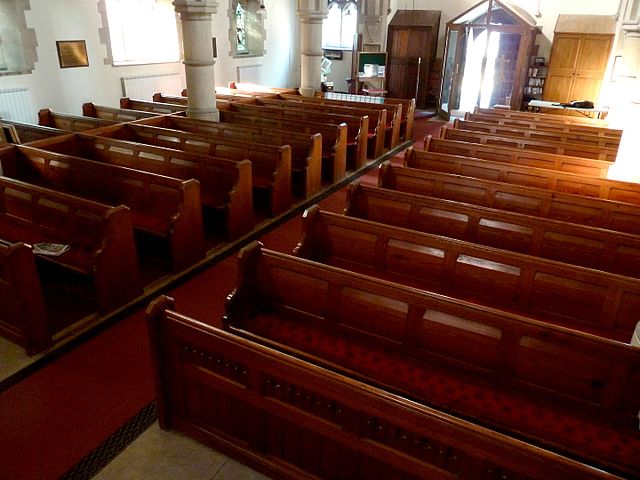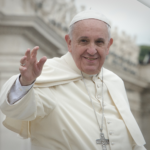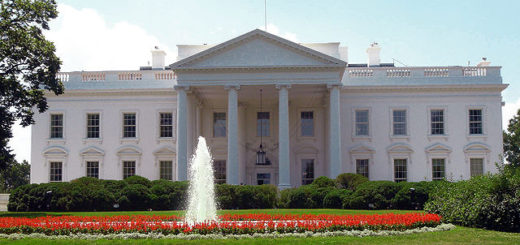Catholic Bishops, Don’t Trigger an Exit from the Pews

Imagine that you are at a fine banquet after being away from crowds due to the coronavirus pandemic. Just as the meal is served, several guests are denied food because of their political beliefs. Angry and disillusioned, you leave – vowing not to return.
Conservative Catholic bishops may trigger such an exodus from the church if they move forward with a letter to the faithful linking receipt of the Holy Eucharist with the church’s teaching on abortion. Their proposal to include language on “Eucharistic coherence” in an otherwise admirable effort to promote deeper understanding of that sacrament could result in the denial of communion to President Joe Biden, Speaker of the House Nancy Pelosi and other prominent Catholics who back abortion options.
As a pro-life Catholic woman, I am deeply troubled at these developments, which will come to a head when the bishops meet in November. So I researched the issue in depth and will lay out in three articles why I believe church leaders should pull back on “weaponizing the Eucharist,” as one cardinal put it. Instead, they should enthusiastically invite people to return to church for worship and the sacraments, and to serve as disciples of God’s love to all people.
Unlike other Christian sects, Catholics are supposed to believe that bread and wine become the real body and blood of Christ during the consecration at Mass. This powerful “transubstantiation” echoes the Last Supper, when Jesus shared bread and wine with his disciples at the Last Supper on the night before he was put to death; he assured them that His body and blood would help give them eternal life.
Pope Francis preached beautifully about this dramatic mystery on the feast of Corpus Christi in 2021 when he called the Eucharist “the Bread of sinners.”
The Holy Father said, “It is on the night he is betrayed that Jesus gives us the Bread of Life… And betrayal is the worst suffering for one who loves. And what does Jesus do? He reacts to the evil with a greater good. He responds to Judas’ ‘no’ with the ‘yes’ of mercy. He does not punish the sinner, but rather gives His life for him; He pays for him. When we receive the Eucharist, Jesus does the same with us: he knows us; he knows we are sinners; and he knows we make many mistakes, but he does not give up on joining his life to ours. He knows that we need it, because the Eucharist is not the reward of saints, no, it is the Bread of sinners. This is why he exhorts us: “Do not be afraid! Take and eat.”

Pope Francis emphasized, “This is the logic of the Eucharist: we receive Jesus who loves us and heals our fragilities in order to love others and help them in their fragilities; and this lasts our entire life.”
Sadly, less than one-third of American Catholics believe that Christ is present in communion, according to a 2019 Pew Research Center poll. Instead, most Catholics view the bread and wine as mere symbols.
Concern about this drop in belief, coupled with a decline in Mass attendance, prompted the U.S. Conference of Catholic Bishops (USCCB) to position the Eucharist at the heart of the five-year strategic plan they adopted in November 2020.

This noble effort took a far-right turn, however, after Democrat Joe Biden was elected to succeed Republican Donald Trump as president. The USCCB chair, Archbishop José Gomez of Los Angeles, quickly created a working group to deal with conflicts between Catholic teaching and policies adopted by Biden. In January 2021, when Biden was sworn in as president, the Archbishop Gomez issued a long and largely critical statement which said, “Our new President has pledged to pursue certain policies that would advance moral evils and threaten human life and dignity, most seriously in the areas of abortion, contraception, marriage and gender.”
The bishops’ hostile approach conveniently separated the public policy beliefs of Joe Biden, a devout Catholic, from personal moral evils, such as Donald Trump’s frequent adultery (including unprotected sex with a porn star while his wife Melania was breastfeeding their infant son), his hostility to refugees and his persistent efforts to withdraw health insurance coverage from sick people.
In June 2021, during the bishops’ semi-annual meeting, they voted to move forward with a letter to the faithful designed to increase understanding of the “beauty and power of the Eucharist.” Controversy sparked over a proposed subsection that would link adherence with church teaching to receipt of communion. A fierce discussion about this action item illuminated sharp divisions between conservative bishops who largely gave Donald Trump a pass during his presidency on everything but abortion, and leaders who expressed concerns that the Catholic church should not get involved in partisan politics.
Read my second article to find out who’s behind the USCCB’s dangerous gambit and how bishops and cardinals aligned with the social teaching of Pope Francis are fighting back.


